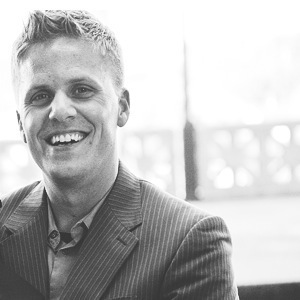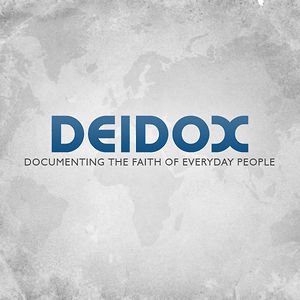Podcast: Play in new window | Download | Embed
Subscribe: RSS

For the last ten years, first at Mars Hill Church and now at Willow Creek Church, Aaron has been trying to invite people into a worship journey that moves beyond singing songs. As Aaron tried to create something “new”, he discovered that many have had this figured out for generations and generations. They call it “The Liturgy”.
And so Aaron has been wrestling with the question: How do we bring the depth and wisdom of the Liturgical tradition into the questions and struggles of today? What can we learn? How can our past shape and launch us into the future? Since the word liturgy means “the work of the people”, how do we best invite our spiritual communities into this work?
On the show we discuss…
-
Aaron’s faith background and how he discovered beauty in liturgical traditions.
-
a New Liturgy, a worship experience project that Aaron has put together along with some friends.
-
The Practice, a liturgical gathering associated with Willow Creek.
Media We Mention:
- Everything Belongs: The Gift of Contemplative Prayer
- Falling Upward: A Spirituality for the Two Halves of Life
- The Holy Longing: The Search for a Christian Spirituality
Remember our beloved sponsor for this episode is Deidox Films. If you like the podcast and want to support it then please check out Deidox and tell your pastor, worship leader or whoever organizes your worship gatherings about it. This week I recommend the short film James.
Deidox produces beautiful, high quality, short documentaries about the real lives of Christians.

Deidox Films is a 501(c)3 film production and distribution company. They are media missionaries. Their mission is to produce and promote documentary films that help the Church reflect Christ and redeem culture.
Their purpose is to partner with Pastors and Church leaders to help make disciples and fulfill the Great Commission. They do this by creating visual models of faith that provide practical examples of modern-day disciples.
If you liked this episode then you might also like…
Seminary Dropout 51: Michael Gungor
Seminary Dropout 60: Shauna Niequist
Subscribe/Rate/Review Seminary Dropout in iTunes

I enjoyed your interview with Alan. This seems to be a recurring theme I am seeing from a lot of different areas. I am a bit of a theological mutt. I grew up Presbyterian but now I pastor a Pentecostal church. I think that in our move to more contemporary and freeing worship we have left behind some of the beauty, reverence and intimacy of the liturgy.
I am a bit concerned with Alan’s mention of Richard Rohr. Rohr is a unversialist that believes that all religions lead to the same God. It is very dangerous when begin to mix the practices of false religions with Christianity. That was a major downfall of the OT Israelites.
With that being said I will take an open look at Alan’s new liturgy.
Thanks for this interview! Aaron mentioned a few books that shaped his thinking and inspired him. Are you going to link to them on the blog? I may have just overlooked the links if you did.
I have loved listening to this podcast and others in the same vein, such as The Liturgists, Science Mike, Robcast, Beyond the Box, etc. It seems like the common theme among these is that all are searching for an authentic faith and are not afraid to discuss difficult questions. It’s not a rebellion against traditional Christianity, but a willingness to examine the claims of our faith in order to deepen it. I think this is an underlying current in the Church that will make its way to the surface as time goes on; and that’s a good thing!
jonstallings Thanks for listening Jon.
The guests name is Aaron by the way.
Many orthadox Christians have found wisdom in the words of Richard Rohr. I myself am not a Universalist, but do not think that being a Universalist makes a person unable to say true things. Also, Universalism is not a religion, but a belief that some within Christianity have held.
If you have a steak that has some fat, don’t throw the entire steak out, because you’ll never find one with zero fat. Eat the meat, leave the fat on the plate.
SteveTheTubist Yes, I plan on posting the links soon.
Also, ‘It’s not a rebellion against traditional Christianity, but a willingness to examine the claims of our faith in order to deepen it.’ – I love that!
beardonabike Hey Shane, not sure how I got “Alan” First off I hope my comment did not come across as harsh. That was not my intent. Perhaps Unitarian would have been a better word. I also did not mean to accuse you are Aaron of un-Biblical beliefs. There are many that we can glean and should glean the good from. I will admit that I am a bit biased. I have had several good friends that strayed far from the Bible after trying to blend Eastern Religions with Christianity.
SteveTheTubist I just updated the post to include the media we mentioned.
beardonabike jonstallings Hey Jon, I just noticed this exchange, as Shane shared it on fb.
Rohr is a tricky one to pin down, theologically, but he is not a universalist in the sense that you have described. He holds on to hope, he says, in his book Everything Belongs, for example, that God will ultimately draw everyone to himself, but he does not think this can happen through any other channel than Christ.
Rohr is a mystic though, so he talks a lot about the “Cosmic Christ,” i.e., the universality of the second person of the Trinity. This idea is what allows him to say things like “all religions at their highest levels know the mystery of grace,” but that’s because he thinks the Spirit of Christ is present in other religions, working in and through them even if they don’t know it, and even in spite of their contradictions with Christianity. His is a more liberal version, you could say, of the common Catholic position on what’s usually called “inclusivism,” which was defended in Vatican II under Karl Rahner’s influence.
All that to say, the position you’re describing is more akin to a kind of relativism/pluralism than Christian universalism, but Rohr is not a pluralistic so much as a universalist. At the same time, Rohr is pretty sloppy when he talks about this, and I get frustrated as well as concerned with his failure to point on the very important differences between the religions he’s alluding to. Too often he does indeed group “all religions” together in terms of their bent toward a final, contemplative place of “non-dual” union with God. So, I share some of your reservations, but I don’t think it’s quite as bad as you say 🙂 Does that make sense?
jonstallings That’s a very reasonable response Jon. Thanks for the conversation!
bwalkeriii beardonabike jonstallings Thanks Bill for the info. I admit that I am no expert on other religions or on Rohr. As I mentioned in my response to Shane I probably should have used the term “Unitarianism” Maybe we still see it differently but as you said “..that’s because he thinks the Spirit of Christ is present in other
religions, working in and through them even if they don’t know it,” Is a big issue for me. Many of the Mystics promote centering prayer which makes use of Zen practices of emptying yourself and using chants / mantras etc.. Also as I have mentioned in my earlier comment that I have had several close friends start with centering prayer and have now strayed far from the Bible. I am not trying to start a debate. Blog comments are a poor medium to get too deep into these subjects.
I am glad that Shane has a blog where we can disagree and still remain civil. Sadly that is lacking on some other Christian blogs. At the end of the day we are all in this walk of faith together.
I agree with you that blogs can sometimes be a poor medium. And I think your concerns are somewhat valid. I’ve had similar experiences seeing some folks trade the Bible for eastern thought, so to speak. But I don’t think centering prayer, for example, and the authority of Scripture, are necessarily mutually exclusive.
Im grateful for a place to disagree in civility as well. Thanks for your sincerity.